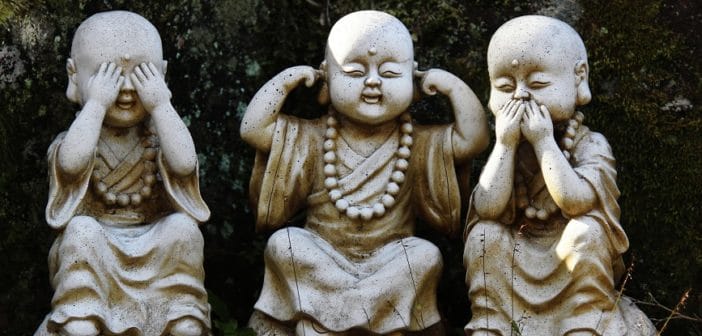 Californians may know Noah Levine as “that punk Buddhist guy,” but more specifically he’s a meditation teacher, an author, a licensed counselor and a recovering addict. The body, mind and spirit behind Dharma Punx and Against the Stream, Levine has taught meditation classes and organized retreats all over the country. Now he has applied his deep knowledge of Buddhism to another field close to his heart: recovery.
Californians may know Noah Levine as “that punk Buddhist guy,” but more specifically he’s a meditation teacher, an author, a licensed counselor and a recovering addict. The body, mind and spirit behind Dharma Punx and Against the Stream, Levine has taught meditation classes and organized retreats all over the country. Now he has applied his deep knowledge of Buddhism to another field close to his heart: recovery.
Buddha’s AA
With Refuge Recovery, Levine has adapted the Buddhist tenets of the Four Noble Truths and the Eightfold Path into an alternative recovery program for addicts of all stripes. Though the Refuge Recovery book was just released last month, the first RR meeting (pardon the abbreviation; it was too easy) took place back in 2008 in Los Angeles. Since then the program has spread to the Bay Area, Santa Cruz, Oklahoma City, Tulsa, Portland and Nashville and has been incorporated into the treatment program at BLVD outpatient center.
Levine is no anti-AA crusader—he actually recommends AA for those who don’t click with his program—but he seeks to provide an alternate path for the many addicts (I used to be one) who are put off by the theistic leanings of 12-step programs. There’s no real God in Buddhism, and Refuge Recovery doesn’t require anyone to believe in any powers outside of him or herself.
AA and RR: The Similarities
Despite the obvious differences, however, it’s clear that Refuge Recovery and 12-step programs share some crucial elements—which is why both can be effective in helping people get sober. The First Truth of Refuge Recovery states that addiction creates suffering, which can take the form of greed, selfishness, lying, isolation, feeling either superior or inferior…why hello, Step 6! As Levine writes, “The foundation of recovery is a complete admission and acceptance of the suffering that we have caused and experienced due to addiction”—in other words, admitting that our lives have become unmanageable.
Just like its more traditional counterparts, Refuge Recovery requires a lot of footwork outside of meetings, including daily meditation and detailed written inventories. The Refuge Recovery volume even takes a page from the Big Book and supplements its program guidelines with recovery tales from members of the community. But the parallels with 12-step programs actually reinforce the strength of Refuge Recovery. After all, what gets people sober in one spiritual context should do the same in another.
Doesn’t Hurt to Have Another Recovery Resource
It’s not hard to see why Buddhism is an effective framework for tackling addiction. The Buddha himself identified suffering as “uncontrollable thirst or repetitive craving”—something all addicts, alcoholics and codependents can relate to. To me, Buddhism has always seemed like the skeptic’s best bridge to spirituality. In fact, before I finally threw in the towel and checked out my first 12-step meeting, I’d just gotten turned onto Tara Brach and had been listening to her talks. Like Levine, Brach studied under Jack Kornfield, and her insights helped open my mind just enough to welcome some version of spirituality into my life. Before long I discovered that Buddhist concepts like Radical Acceptance were actually versions of principles I was learning in recovery.
Through meditation, wise actions and compassion, Siddhartha Gautama was able to free himself from a life of suffering. Thousands of years later, so was Noah Levine, and now, perhaps, so can you.
Sponsored DISCLAIMER: This is a paid advertisement for California Behavioral Health, LLC, a CA licensed substance abuse treatment provider and not a service provided by The Fix. Calls to this number are answered by CBH, free and without obligation to the consumer. No one who answers the call receives a fee based upon the consumer’s choice to enter treatment. For additional info on other treatment providers and options visit www.samhsa.gov.




